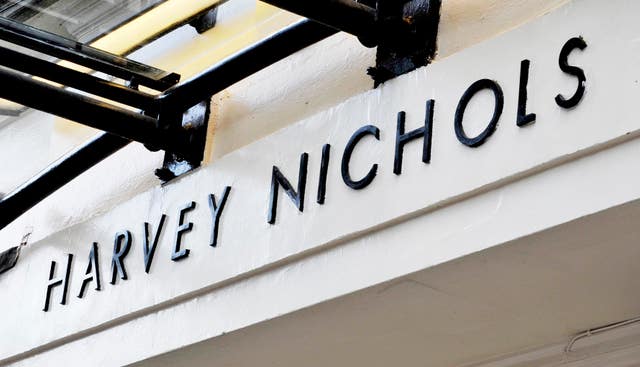Timeline: The rise and decline of high street giant Debenhams
Key moments in the long history of the retailer.

Debenhams, long a staple of the British high street, has a history stretching back more than two centuries.
Here, we look back over key moments in its growth and decline.
– 1778 – William Clark opens a drapers store selling expensive fabrics and accessories in London’s West End.
– 1813 – William Debenham invests in Clark’s firm and it becomes Clark and Debenham. It opens its first shop outside the capital five years later in Cheltenham.
– 1905 – Following decades of business acquisitions from retail to manufacturing, Debenhams Ltd is incorporated.
– 1920 – The business purchases retailer Harvey Nichols in Knightsbridge.

– 1928 – Debenhams becomes a public company after the Debenham family ends its involvement in the business.
– 1950 – The retailer becomes the largest department store in the UK, owning 84 companies and 110 outlets.
– 2013 – After decades of growth, sales start to slide and the company announces a profit warning, amounting to a 26% plunge. Shares drop 12%.
– January 2014 – Simon Herrick, the company’s chief financial officer, resigns after the profits warning.
– January 2015 – A curb on promotions boosts Christmas sales for Debenhams, but fails to stave off questions about its turnaround plans.
– October 2015 – Michael Sharp, the company’s chief executive, announces he will be stepping down amid shareholder pressure for a boardroom shake-up. It comes as Debenhams enjoys its first rise in annual profits for four years, up 2.9% in underlying pre-tax profits.

– May 2016 – Amazon Fashion boss Sergio Bucher is confirmed as Debenham’s new chief executive.
– October 2016 – The challenges facing Mr Bucher are laid bare when a slump in full-year profits is reported, down 10.4% before tax.
– April 2017 – Debenhams reveals plans to put 10 stores under review and says it is closing 11 warehouses, including one of its major distribution centres employing 220 staff.
– October 2017 – The retailer reports a collapse in annual pre-tax profits, tanking 44% to £59 million in the year to September 2.
– January 2018 – Further turbulence is disclosed, with Debenhams saying UK like-for-like sales tumbled 2.6% in the 17 weeks to December 30, with overall group sales down 1.8%.

– February – It is announced 320 store management roles are to be slashed.
– April – A half-year profits plunge of nearly 85% is revealed, with pre-tax profits falling from £87.8 million to just £13.5 million over the 26 weeks to March 3. Sales took a major hit during the final days of the trading period when bad weather forced Debenhams to temporarily close around 100 stores.
– June – Debenhams issues its third profit warning of the year.
– August – The retailer announces it is to swing the axe on up to 90 staff as it enters redundancy talks with hundreds of workers at its fashion and home departments.
– October – Shares plunge 17% after KPMG is called in to help draft emergency plans to save the high-street giant. Plans are unveiled for 50 shops to be closed, threatening 4,000 jobs.





